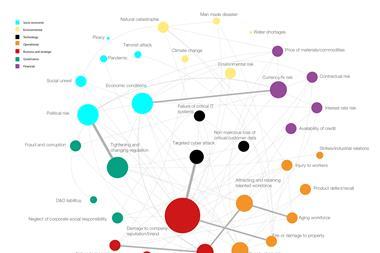International law firm makes 50 insurance predictions for next year
Insurtech and Brexit are the two main themes in the new Insurance Market Conditions & Trends 17/18 report, published today by DAC Beachcroft.
Every year, the international law firm publishes 50 predictions for the insurance industry for the year ahead. This year’s report also features three market insight pieces on autonomous driving, the legal and regulatory challenges of artificial intelligence and the potential of blockchain for insurers.
The 50 predictions made by DAC Beachcroft’s insurance experts cover 12 lines of insurance business. In relation to product liability, it is anticipated that robotics will require the insurance industry to reassess traditional first and third-party risks. The report warns that insurers who do not re-evaluate their current policy wordings may be caught out.
In the marine field, it is anticipated that the emergence of digitised supply chains will deliver greater transparency about the contents, value and location of containerised cargo for insurers.
Casualty specialists forecast that sexual abuse claims against sports clubs, sporting bodies and voluntary bodies will increase significantly while sickness on holiday may become the new whiplash.
Commenting on the launch of the report, Helen Faulkner, head of insurance at DAC Beachcroft, said: “Insurtech emerged repeatedly as we pulled together this year’s 50 predictions, having grown exponentially since it appeared as one of our predictions last year.
“While Insurtech has developed rapidly, it is not necessarily a revolution. Yes, it will cause some disruption but we expect those established insurers and brokers that embrace the new technologies to evolve and thrive.”
In his commentary on Brexit, insurance advisory partner Mathew Rutter considered how three possible scenarios - The Managed Transition (an amicable, softer exit), The Big Bang (a well-managed, hard Brexit) and The Crash Landing (an acrimonious, inconclusive or fragmented Brexit), might play out.
“There is an understandable temptation to try to second guess the direction of Brexit negotiations and interpret each statement for clues as to what the final outcome might look like,” he noted.
“The truth is that we are unlikely to know for certain until very late in the process. The industry appears to be as well-prepared as it can be given all the uncertainty, but we will be watching the negotiations closely over the next 18 months.”




















No comments yet